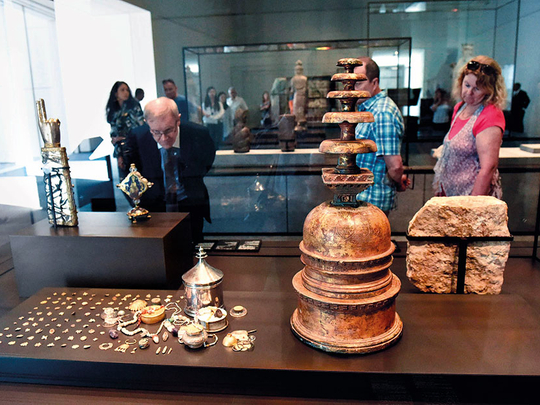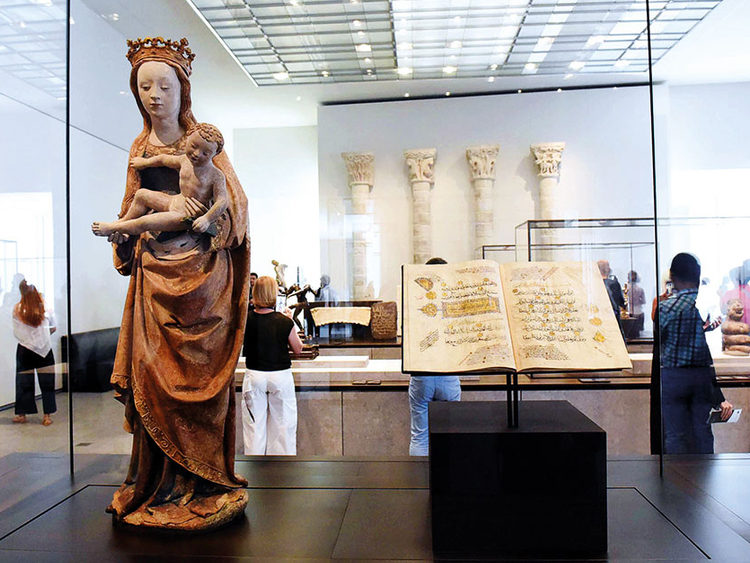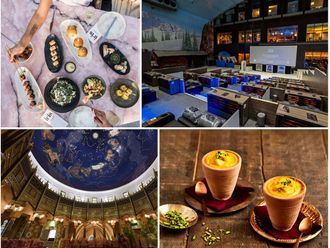
Abu Dhabi: In the current international climate, wherein Islamophobia, nationalism and sectarian divisions reign supreme, the Universal Religions gallery comes as a an eye-opener and a breath of fresh, peacemaking air. And it is in this gallery that many visitors say the universal narrative of the Louvre Abu Dhabi rings most true.
The pieces included here cover late antiquity to the 15th century, featuring artefacts and texts with a religious element.
To set the tone, the opening display includes a 14th century mosque lamp from the Mamluk empire, a 12th century figurine of a Buddha from Nepal, and a gorgeous 13th century French stained glass window depicting a Christian saint’s life. Behind this, a regal French sculpture of Virgin and Child is on show, next to the last chapter of the Quran produced in the late 13th century.
Lining a wall are terra cotta-coloured pieces of an architectural frieze created in Rajasthan, while another wall features massive Romanesque stone columns from a 12th century French church.
Perhaps the most startling aspect of the gallery is the nature in which world religions once held sway in regions that no longer boast their followers today. For example, there is a dome shaped relic holder from a first century Buddhist shrine, said to have been located in modern day Pakistan, with a collection of precious objects next to it. The copy of the Torah’s first part housed at the Louvre Abu Dhabi also comes from Muslim-majority Yemen.
In the room with dimmed light where the Torah is on display, there is also a page from the famous North African ‘Blue Quran’ that dates back to the 10th century. And in keeping with the theme of universality and commonality, it is placed neatly next to a sacred Buddhist text sourced from 14th century China.
Religions are universal, the gallery seems to say, and share much more in common than most of us care to believe.
Timings and entry fee: 10am-8pm on Saturday, Sunday, Tuesday, Wednesday; 10am-10pm on Thursday and Friday
Dh60: Adults
Dh30: 13-22 years
Dh30: Education professionals
Free entry: Children under 13. Members of Louvre Abu Dhabi’s Art Club loyalty programme, journalists, visitors with specials needs and their companions
Next: Asian Trade Routes









